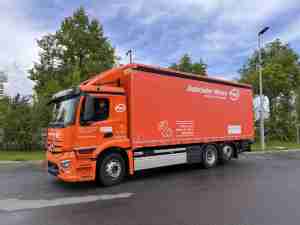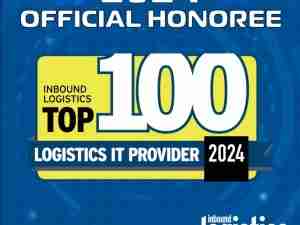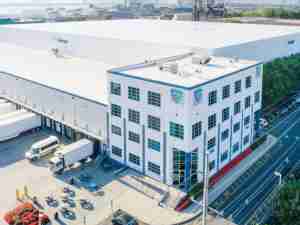Gene Gander, Vice President of Sales for CargoWise' edi, a provider of integrated international supply chain logistics management systems, says that while today's global business environment is replete with dynamic execution technologies and IT initiatives, not all shippers and freight forwarders are realizing the benefits that optimize sales and operational visibility across extended supply chains.
'With so many complex choices available, it's not unusual for company management to be confused by the choices and uncertainty of the IT solutions that best fit their unique supply chain requirements,' says Gander. 'Often this includes just making the decision whether to build an IT platform in-house or outsource the functions to an expert software solution provider. Making these decisions requires proficient leadership skills with the capacity to identify, implement, communicate and manage the objectives necessary to optimize the comprehensive IT operating platform that is put into place within an organization.'
Gander says that without a strong commitment and ongoing follow-up from executive leadership, managing supply chain operations with robust technologies can be a difficult, costly, and often frustrating undertaking. 'If a company's corporate culture does not support the commitment and budget necessary to provide optimal supply chain solutions for its customers, the successful management of IT operations as they relate to sales and operations can be mired in cross-departmental inefficiencies and confusion. Successful IT operations are driven by dynamic company leadership that understands the significant function that optimizing supply chain management and visibility plays in creating long-term sales and ROI.'
CargoWise edi says a company's cultural alignment and cross-departmental communications capabilities, especially as they relate to today's software technologies, play a significant role in minimizing the degree of IT risk it absorbs, as well as the impact on its expenditures and the overall maximization of the business process. Key to the companywide administration of the successful total supply chain management process is commitment, communication and departmental integration from the top down at any freight forwarding operation.
'Executive management can best ensure a successful IT-driven sales and management operation by thoroughly examining the status of its existing IT capabilities,' says Gander. 'If a company does not have in-house state-of-the-art IT capabilities and optimal cross-departmental/office communications on a global basis, it probably does not have the wherewithal to provide the proper operating platform to meet customers' supply chain requirements. In this case, the company should outsource its IT functions to an appropriate software provider to remove the risk from IT-related projects and obtain the necessary logistics solutions that drive the business. This is typically more inexpensive and effective than incurring the continual cost and ongoing in-house complexity of trying to revise an outdated legacy system.'
Due to the dynamic nature of today's global technology, training for IT system users is also of paramount importance. A company may find that the fixed costs of building and maintaining a vibrant IT system in-house and providing training to cross-departmental users is far more costly than outsourcing it to an expert software provider that offers dedicated training programs and flexibility in responding to market dynamics rather than waiting years for a new and more expensive system to be developed internally. Outsourcing the execution software technology can often greatly expedite the supply chain process and produce better results for customers. That is a management decision, the metrics of which that should be monitored carefully for success.
'Unfortunately,' summarizes Gander, 'many in positions of company leadership don't fully understand the metrics of IT administration in a dynamic global economy a









